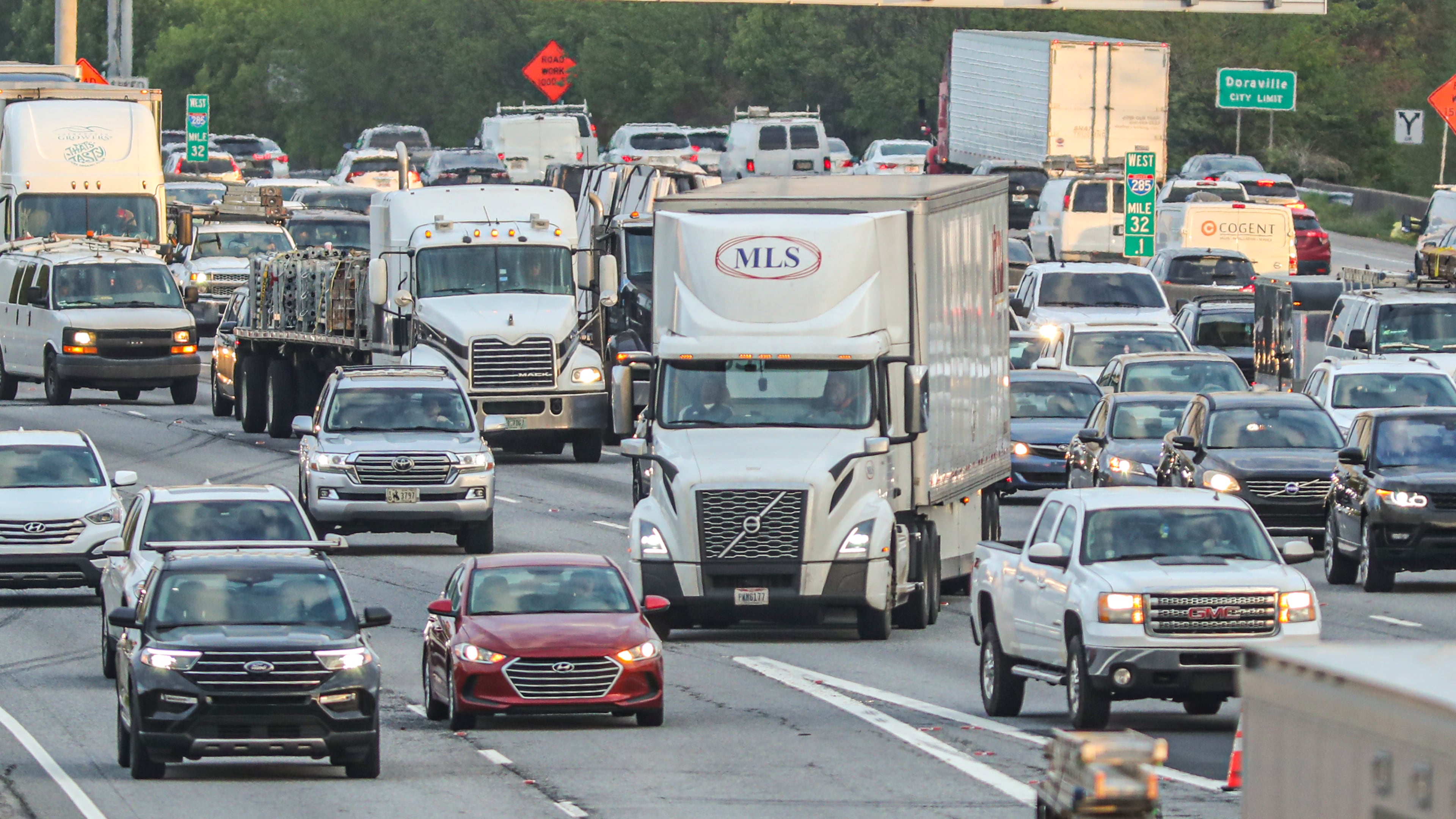Road rules challenge: Atlanta drivers could use a refresher

One morning, while I was driving north on Moreland Avenue near I-20, a sedan swerved in front of me, causing me to slam on the brakes. As I laid on the horn and shot a dirty look through the windshield, I saw the distinctive license plate indicating the car belonged to a certain state senator.
It was a reminder that Atlanta’s horrible traffic affects everyone, even someone with the power to do something about it.
We hear a lot about traffic in Atlanta, and most of what we hear is bad news. Metro area interchanges consistently rank among the most congested, and commute times always rank among the longest.
Atlanta interchanges claimed five of the top 20 spots on the American Transportation Research Institute’s list of the worst bottlenecks as measured by truck GPS data. Spaghetti Junction, I-75 and I-285 (aka the Cobb Cloverleaf), I-20 and the west wall of I-285 were all named.
When adjusted by the number of commuters in the region, metro Atlanta ranked fifth in the nation for the longest average commute times, with an average of 31.23 minutes, according to a February report from the Atlanta Regional Commission.
Bottom line, we have bad traffic, and the rest of the country knows it. But what we hear less about is how all of that anxiety causing traffic has turned us into some of the worst drivers on the planet.
I’m not talking about the terrifying instances of road rage — though reports would indicate those too are on the rise in metro Atlanta with the recent shooting in Paulding County. I am talking about the little daily infractions that leave us shaking our heads and wondering if the Department of Driver Services even administers tests anymore.
After almost getting sideswiped by the senator, I started collecting stories from friends and acquaintances about some of the most universally bad driving in Atlanta.
For example, when did we stop stopping for emergency vehicles?
Anyone who passed the road knowledge test should know that emergency vehicles with flashing lights have the right of way. It doesn’t matter if they are approaching from behind, from the front or at an intersection: You must safely stop and pull to the side of the road. The last time I did that, the person behind me honked at me for stopping.
In Atlanta, when a traffic signal turns yellow, many drivers do not take this as a signal to slow down. On these streets, it means speed up.
If we can’t agree on the proper action for a yellow light, we should at least be able to agree that red means stop. But once again, Atlanta drivers have changed it up. Here, a red light is the signal for drivers to swerve into the left turn lane and whip around the car in front of them in order to run the red light.
That’s a lot of maneuvering in just a few seconds. It would be easier and safer to just stop.
Special recognition goes to those creative yet risky Atlanta drivers who have reimagined the center turn lane as a passing lane.
Who cares if they almost have a head-on collision with a driver who is using that lane to actually turn? Why not drive 50 mph in that center lane to leap in front of cars traveling at the speed limit?
A friend described an incident on Hosea Williams and Whitefoord, in which he watched a driver at a red light accelerate through the intersection just as a woman began pushing her stroller into the crosswalk.
The list of everyday driving infractions in Atlanta is long. They have become so common that I recently began questioning myself. Am I the one who doesn’t know the rules of the road? Has there been an update to Georgia driving laws that I missed?
I’ve been gaslit by Georgia drivers.
Drivers across the state must renew their license every eight years. As in most other states, however, only new drivers are required to take a knowledge exam with questions about road rules and road signs, as well as a road skills test administered either virtually or with another human in the car.
If a driver has a license that has been expired for two years, they must retake both exams before getting a new one. And once a Georgia driver hits age 64 or older, they must take and pass an in-person vision screening when renewing their license.
I used to think more frequent testing was the answer to combating bad driving in Atlanta, but although additional mandated written and/or skills tests might help remind people of the rules, it won’t do anything to stop them from violating those rules to get where they are going faster.
Maybe after they have 20-plus years of driving experience, Atlanta drivers should be required to complete a road skills test during rush hour. That would give evaluators an opportunity to observe how a longtime driver might behave during the worst conditions instead of evaluating only the newest drivers under the best conditions.
Until Atlanta addresses its chronic congestion, I’ve opted to just avoid it. I drive during nonpeak hours, always take the road less traveled and when I run into a driver with errant behavior, I shake my head and try to get out of the way.
Read more on the Real Life blog (ajc.com/opinion/real-life-blog) and find Nedra on Facebook (facebook.com/AJCRealLifeColumn) and X (@nrhoneajc) or email her at nedra.rhone@ajc.com.



